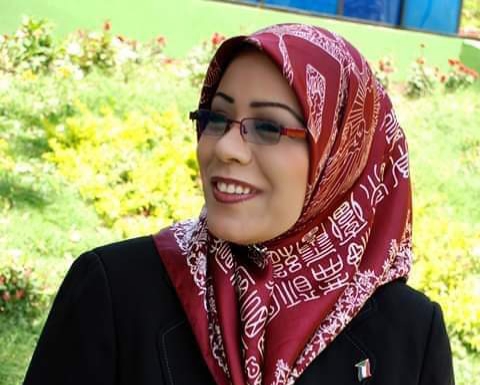Even If After a While

Dr. Enas Mohamed Ahmed
Throughout history, humanity has known conflicts and wars and witnessed the death, destruction, and devastation they leave behind. Just as the machinery of war has evolved, so too have societies, leading to the development of rules governing warfare. Norms emerged to regulate the treatment of prisoners and civilians who did not participate in the conflict but found themselves caught in its crossfire.
The global commitment to these norms has fluctuated over time, but historically, civilizations have laid down principles and foundations to protect civilians from the ravages of war. This evolved into international humanitarian law, a branch of international law that seeks to limit the devastating effects of armed conflict—especially on civilians—who are often the most vulnerable. War can destroy their homes, shut down their schools, target their hospitals, and damage all vital infrastructure like water stations, power plants, and markets. That is why the world has sought to protect them and to classify any attack against them as a war crime.
Accordingly, the Rome Statute of the International Criminal Court states that deliberately targeting civilians or non-combatants constitutes a war crime, whether in international or non-international conflicts. Similarly, the killing of civilians is prohibited under Article 89 of the Code of International Humanitarian Law and is also considered a war crime.
Civilians are protected by an international treaty: the Geneva Convention Relative to the Protection of Civilian Persons in Time of War, dated August 12, 1949.
Article 3 of the convention prohibits the following acts at all times and in all places:
a. Violence to life and person, in particular murder of all kinds, mutilation, cruel treatment, and torture.
b. Taking of hostages.
c. Outrages upon personal dignity, in particular humiliating and degrading treatment.
d. The passing of sentences and carrying out of executions without previous judgment pronounced by a regularly constituted court affording all judicial guarantees.
A war crime has a contextual element—armed conflict—and a psychological element, requiring the perpetrator’s awareness and intent.
When we apply this legal framework to reality, we witness the horrific crime committed by the terrorist Rapid Support Forces militia, which murdered 31 unarmed civilians without cause, simply because they were in an area where the militia of death, destruction, and looting operated. They were executed in cold blood in the “Salha” area, south of Omdurman city, in full view of the world. Worse still, the massacre was boasted about, and further atrocities were threatened against all Sudanese civilian communities, including the execution of captives and abductees, most of whom were civilians.
This is not the first time that this criminal militia has committed a massacre that shocks the conscience of humanity. Many previous massacres and horrific crimes occurred in places like Wad Al-Noura, Al-Hilaliya, the villages of Al-Jumaiya, and Zamzam camp, among others. They have buried people alive, as happened to the Masalit people, and carried out systematic, ongoing ethnic cleansing in El Geneina, West Darfur. There is hardly a city or village that has not witnessed a chilling crime leaving a stain on the face of humanity.
This criminal militia mocks international laws and human values and shows no respect for global norms. So, what is the international community waiting for to designate it a terrorist group? And what is the delay in condemning the rogue state that supports and finances it, as a state sponsor of terrorism?
This is not the first crime of its kind by this terrorist militia. Its record is filled with crimes against humanity, genocide, and war crimes. There is no vile act or heinous crime they haven’t committed.
Its vile record reeks of blood and death.
These crimes do not expire with time. Humanity does not forget, and history will record every one of them.
But the terrorist militia and its backers fail to understand that the Sudanese people do not break, and they never surrender. They bow to none but Almighty God, and victory will surely come—even if after a while.
O God, grant our armed forces a glorious victory.
Quoted from Al-Muhaqqiq website



